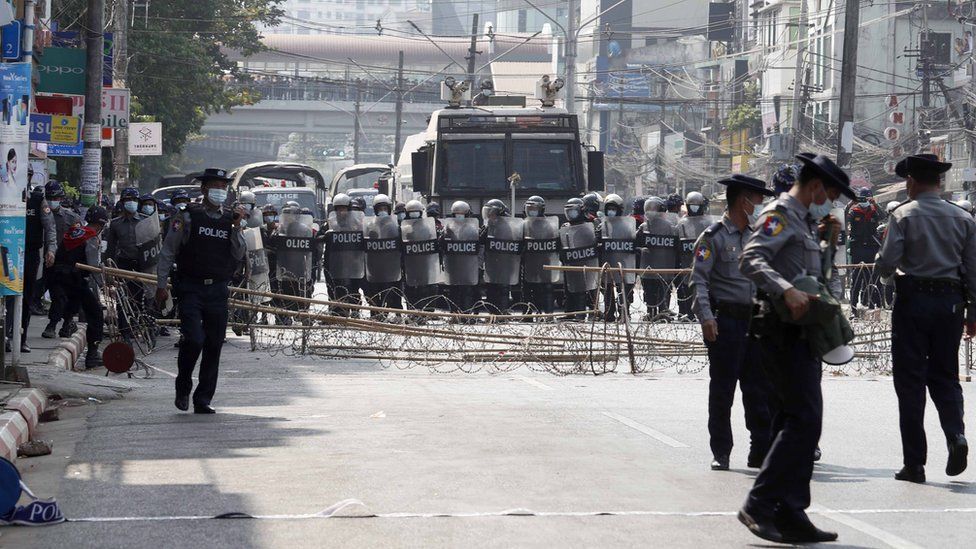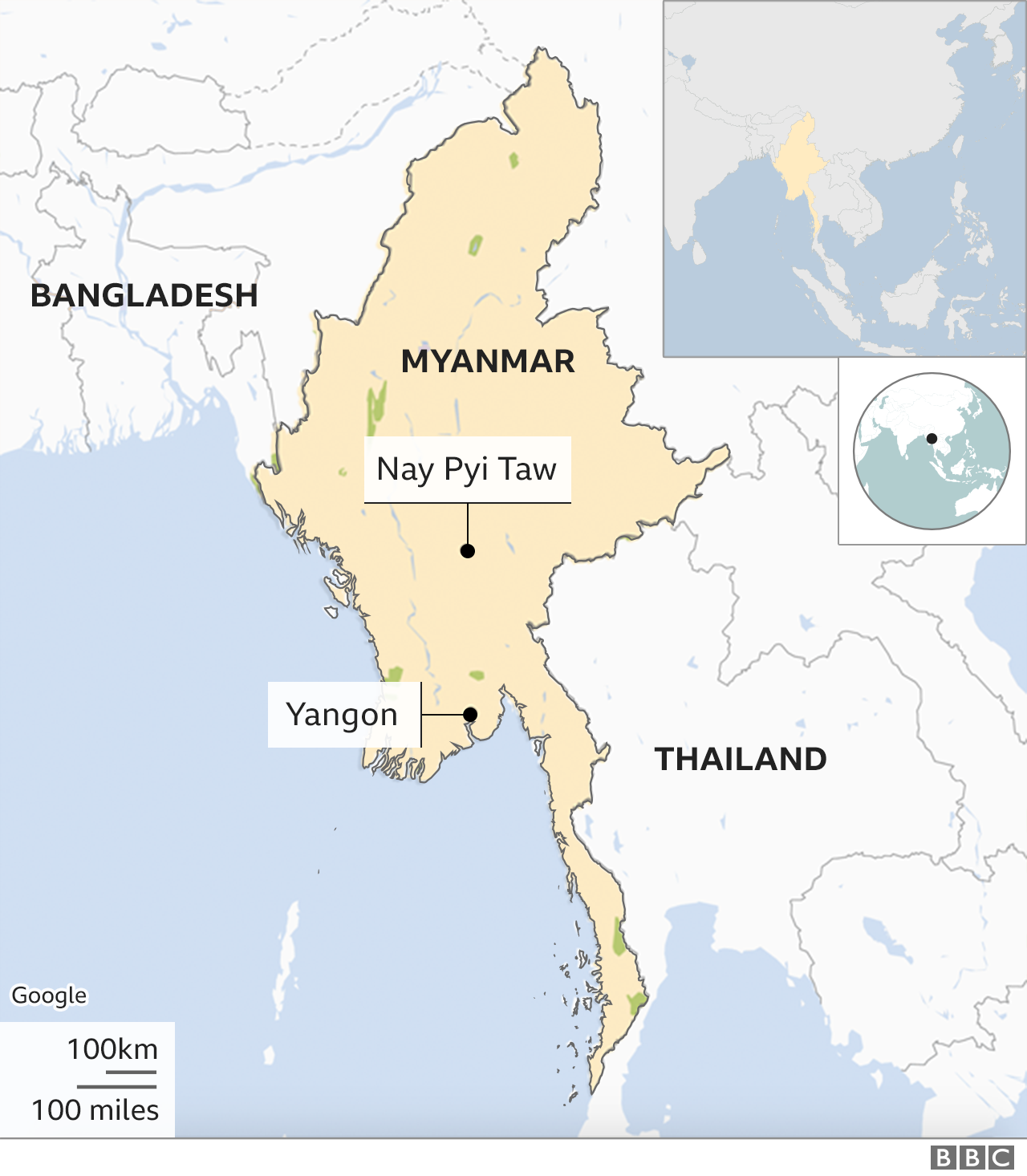Myanmar coup: Internet shutdown as crowds protest against military
 image copyrightEPA
image copyrightEPAMyanmar's military rulers have shut down the country's internet, according to monitors, as thousands of people protest against this week's coup.
A near-total internet blackout is in effect, with connectivity falling to 16% of ordinary levels, NetBlocks Internet Observatory said.
The BBC's Burmese service also confirmed the shutdown.
It comes the country sees the largest rally since the military seized power on Monday.
"Military dictator, fail, fail; Democracy, win, win," the crowd chanted in the main city Yangon.
Police with riot shields have blocked the main roads into the city centre.
Access to Twitter and Instagram has been blocked to stop people mobilising, a day after Facebook was banned.
The military have not commented. They temporarily blocked access to the internet following the coup on 1 February.
On Saturday, protesters including factory workers and students called for the release of those detained by the army, including elected leader Aung San Suu Kyi.
They marched through the streets of Yangon as city buses sounded their horns in support. Bystanders flashed the three-finger Hunger Games salute, which has become a symbol of defiance against authoritarianism in the region.
Demonstrators gave police roses and bottles of drinking water, calling on them to support the people not the new regime.
 image copyrightEPA
image copyrightEPAMyanmar - also known as Burma - has remained mostly calm in the aftermath of the coup, although some demonstrations have been held in different parts of the country.
The BBC's Nyein Chan in Yangon says the Burmese know very well the violent crackdowns that the military is capable of. The country was ruled by an oppressive military government from 1962 to 2011.
But now that people have had time to digest what is happening, they are finding different ways to get their voices heard, our correspondent says.
Ms Suu Kyi is under house arrest, according to her lawyer. Police documents show she is accused of illegally importing and using communications equipment - walkie-talkies - at her home in the capital, Nay Pyi Taw.
The coup took place as a new session of parliament was set to open, following November's landslide election win by Ms Suu Kyi's National League for Democracy (NLD) party.
Many Burmese watched the events unfold in real time on Facebook, which is the country's primary source of information and news. But three days later, internet providers were ordered to block the platform for stability reasons.
Following the ban, thousands of users were active on Twitter and Instagram using hashtags to express their opposition to the takeover. By 22:00 local time (15:30 GMT) on Friday access to those platforms had also been denied.
There was no official word from the coup leaders but the AFP news agency said it had seen an unverified ministry document that said the two social media sites were being used to "cause misunderstanding among the public".
A spokeswoman for Twitter said the ban undermined "the public conversation and the rights of people to make their voices heard". Facebook, which owns Instagram, called on the authorities to "restore connectivity".

Myanmar at a glance
Myanmar is a country of 54 million people in South East Asia which shares borders with Bangladesh, India, China, Thailand and Laos.
It was ruled by an oppressive military government from 1962 to 2011, leading to international condemnation and sanctions.
Aung San Suu Kyi spent years campaigning for democratic reforms. A gradual liberalisation began in 2010, though the military still retained considerable influence.
A government led by Ms Suu Kyi came to power after free elections in 2015. But a deadly military crackdown two years later on Rohingya Muslims sent hundreds of thousands fleeing to Bangladesh.
It triggered a rift between Ms Suu Kyi and the international community after she refused to condemn the crackdown or describe it as ethnic cleansing.
She has remained popular at home and her party won again by a landslide in the November 2020 election. But the military have now stepped in to take control once more.



Have you been affected by recent events in Myanmar? You can share your experience by emailing haveyoursay@bbc.co.uk.
Please include a contact number if you are willing to speak to a BBC journalist. You can also get in touch in the following ways:
- WhatsApp: +44 7756 165803
- Tweet: @BBC_HaveYourSay
- Please read our terms & conditions and privacy policy



No comments